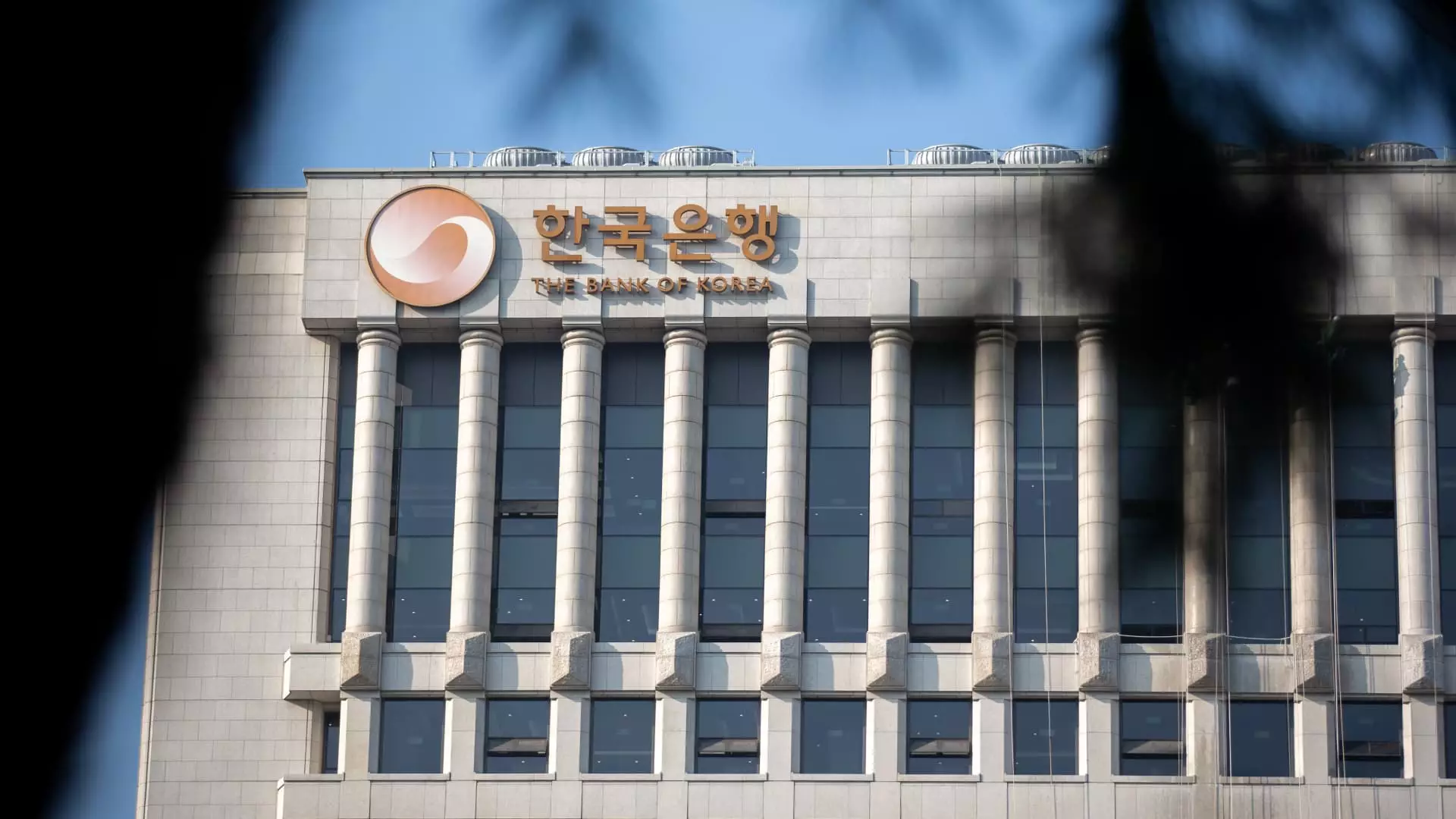In a surprising bid to navigate rough economic waters, South Korea’s central bank has opted to lower its policy interest rate by 25 basis points, marking a clear indication of the dire challenges facing the nation’s economy. This decision, which sees the rate drop to 2.5%—the lowest since August 2022—comes against a backdrop of political disarray and external pressure from the U.S. The Bank of Korea’s repeated adjustments, now totaling four cuts in the last six meetings, reflect a desperate attempt to stabilize a faltering economy amidst growing insecurities both locally and globally.
The economic landscape is muddied not only by internal strife but also by external aggressions, namely the punitive tariffs imposed by the Trump administration. Set at 25%, these tariffs are already wreaking havoc on South Korean exports, and although a temporary suspension was announced, the clock is ticking towards a July deadline for negotiation. With critical elections looming on June 3, the political climate is further exacerbated by the recent impeachment of former President Yoon Suk Yeol, whose ill-fated attempt at enforcing martial law has left the country’s leadership in utter disarray.
Political Instability as a Catalyst for Economic Downturn
It’s critical to understand that political turbulence can be as damaging to an economy as tangible policy decisions. The storm brewing over the South Korean government has paralyzed decision-making processes at a time when swift action is required to dodge economic pitfalls. Economic sentiment is often fragile, and when citizens see their leaders embroiled in scandal and crisis, consumer confidence typically mimics that insecurity. The impending presidential elections only add to the uncertainty, with fears of potential delays or complications in striking a new trade agreement with the U.S. hanging over citizens like a dark cloud.
The previous administration’s failures have stymied expectations for immediate recovery. The lack of effective fiscal policy due to political chaos translates to weakened consumer spending. According to industry analysts, the anticipated rebound following the election might not be robust enough to counterbalance the immense setbacks plaguing the property sector and ongoing export disruptions.
Economic Indicators Reveal Deep Cracks
South Korea’s unexpected GDP contraction of 0.1% in the first quarter of the year signals deep-set vulnerabilities in the economy. This contraction marks a critical moment; it is the first decline since late 2020, highlighting how frail economic foundations have become under the weight of relentless external pressures. The Bank of Korea’s revised GDP growth forecast—a glaring cut from 1.5% to a mere 0.8% for 2025—underscores how rapidly the narrative is shifting in this hyper-competitive and interconnected world economy.
The central bank’s statement about maintaining a rate-cut stance underlines an unvarnished truth: they are actively engaged in damage control in hopes of buoying economic stability. However, the job of guiding the economy out of these turbulent waters may remain a Sisyphean task unless some form of political stability is restored. The latest forecast from experts like Gareth Leather suggests that any upcoming administration must immediately implement significant fiscal stimulus if there’s to be any chance for a rebound.
The Market’s Response: A Double-Edged Sword
While the initial public reaction post-rate cut saw the Kospi stock index rise by 1.25%, this short-term flicker of optimism is overshadowed by the deeper malaise affecting the South Korean economy. Concurrently, the South Korean won weakened by 0.71% against the dollar, reflecting dwindling confidence in the currency which can provoke inflationary pressures—an irony in a situation where inflation is already broadly stable.
This juxtaposition reveals an unsettling pattern: markets can respond positively to policy shifts, while underlying economic conditions remain precarious. The seeming disconnect between markets and economic realities points to the nuanced and often painful truth of contemporary economics: policies can provide temporary relief, but they do not erase deep-rooted issues.
The trajectory of South Korea’s economic future rests on both immediate policy interventions and subsequent political stability. How leaders navigate these challenges will ultimately determine not just economic outcomes, but the resilience of national identity in a globalized economy where unpredictability reigns.


Leave a Reply